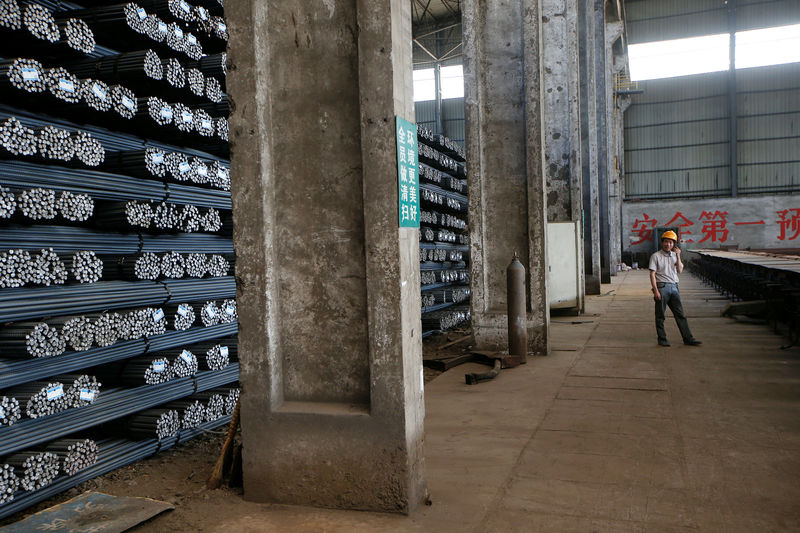* Steel traders may restock after end of G20 summit
* Dalian iron ore slips at close, but above 1-month trough (Updates prices)
By Manolo Serapio Jr
MANILA, Sept 5 (Reuters) - Chinese steel futures advanced on Monday, supported by expectations that seasonal demand in the world's top steel consumer will pick up this month along with construction activity.
The end of the G20 summit in China may also spur restocking of the building material among end-users that had been cut off from some suppliers over the past few weeks. Steel mills around the eastern city of Hangzhou were closed ahead of the gathering of world leaders in a bid by Beijing to improve air quality.
"Prices may renew their upward momentum as we have entered September, which is usually the peak season for steel consumption," said Richard Lu, Beijing-based analyst for CRU consultancy.
Lu said end-users may not only replenish steel inventories after the G20 meeting ends on Monday, but also ahead of a week-long break for China's National Day in early October.
"Traders typically store some steel inventory for sale after the Golden Week holiday but this did not happen last year. However, the sentiment this year is much better than last year," Lu said.
The most-traded January rebar on the Shanghai Futures Exchange SRBcv1 closed up 0.4 percent at 2,436 yuan ($365) a tonne, but off the session's high of 2,463 yuan.
The construction steel product had touched 2,362 yuan on Sept. 1, its lowest since Aug. 1.
On the Dalian Commodity Exchange, the price of steelmaking raw material iron ore DCIOcv1 dropped at the close after rising more than 1 percent intraday.
The contract eased 1.3 percent to 418.50 yuan a tonne, but still above last week's one-month trough of 408 yuan.
Supporting iron ore, inventory of the commodity at major Chinese ports dropped 1.3 million tonnes from the previous week to 103.8 million tonnes as of Sept. 2, based on data tracked by SteelHome consultancy. SH-TOT-IRONINV
That marked the fifth weekly consecutive decline in China's imported iron ore stockpiles, which had peaked at 106.05 million tonnes in July, the most since December 2014. ($1 = 6.6768 Chinese yuan)
